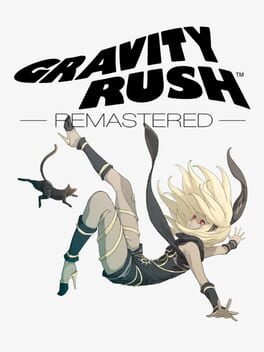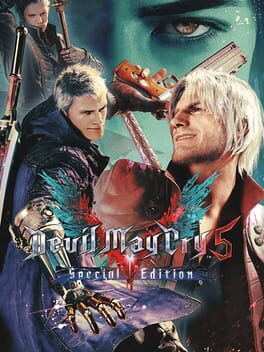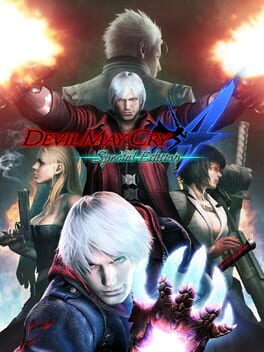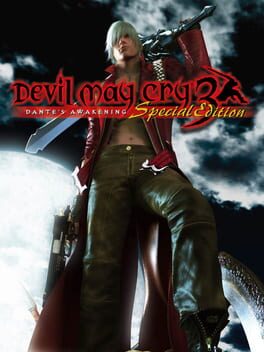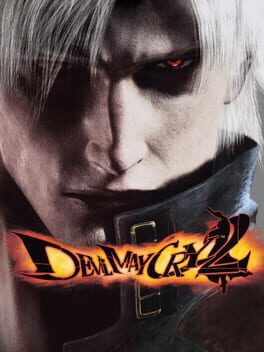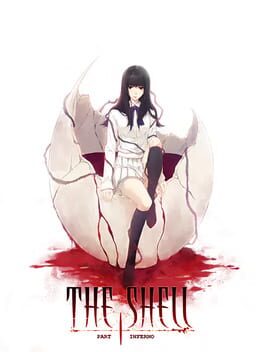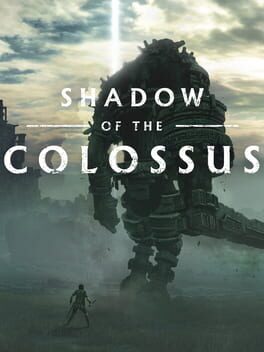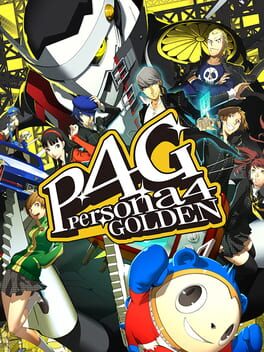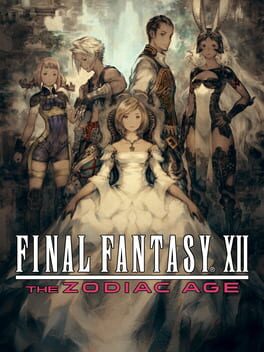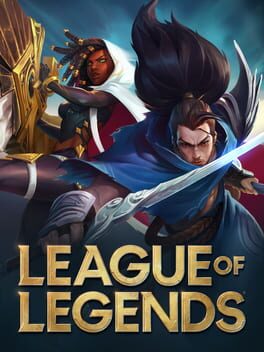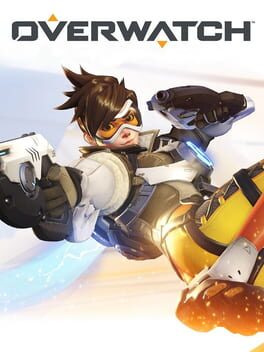DaddyRosfield
"The flow of time is cruel"
This is a watershed title in video game history, and for me personally too. The Legend of Zelda: Ocarina of Time was the moment my imagination spurred into something greater as a three year old child. Everything I've ever thought of creatively has been influenced by this game in some way, shape or form. I cannot stress enough how much this game has shaped me into who I am today. From this whimiscal hero's journey that Link goes on throughout the course of the 20 hour experience, to the fantastical world of Hyrule and its myriad of wonderful, diverse and creative races, to Koji Kondo's sublime soundtrack that mixes atmosphere and amibience with melody and triumph. Ocarina of Time is not a perfect game, but it was the perfect game for me at that time in my life, and that's all that really matters to me. While it's not as thought provoking or as deep as its contemporaries, it still is a must play for anyone who is serious about video games as an art form.
This is a watershed title in video game history, and for me personally too. The Legend of Zelda: Ocarina of Time was the moment my imagination spurred into something greater as a three year old child. Everything I've ever thought of creatively has been influenced by this game in some way, shape or form. I cannot stress enough how much this game has shaped me into who I am today. From this whimiscal hero's journey that Link goes on throughout the course of the 20 hour experience, to the fantastical world of Hyrule and its myriad of wonderful, diverse and creative races, to Koji Kondo's sublime soundtrack that mixes atmosphere and amibience with melody and triumph. Ocarina of Time is not a perfect game, but it was the perfect game for me at that time in my life, and that's all that really matters to me. While it's not as thought provoking or as deep as its contemporaries, it still is a must play for anyone who is serious about video games as an art form.
"Everything you remember about the past is all in your head, right? Then that's all that matters."
Gravity Rush is a game that speaks an idea out loud that sounds delightful in concept, but in execution its wound up wanting an audience that doesn't firmly grip what it is trying to do. The core idea of soaring through the skies at a push of a button is an exhilarating thought, and sometimes, it works flawlessly, especially when the game is focused solely on platforming sections. The creativity that is abound, especially in the second area of the game, is a delight to behold, truly.
However, when combat begins, the quality is flushed right down into the Gravity Well.
Combat is clunky and a lot of the agency is taken away from the player leaving them with a lot of errors that simply are not their own fault due to an obscenely poor lock on system. The Gravity Kick is both incredibly overpowered and also completely unreliable due to the lock on not working at least 40% of the time during my eight hour playthrough. The basic kick and dodge are not even really worth talking about since most enemies have weak point above the areas where that kick would even be useful.
The side missions are all quite tedious too. Aside from the races and platforming challenges, all the time trials and combat missions overstay their welcome to be anything other than a roadblock to progressing your characters skills further towards their maximum levels.
On a more positive note, the presentation and charming writing were a delight in Gravity Rush. The whimsical orchestral score made Hekseville feel alive and gave the game a real Studio Ghibli-like atmosphere with the Aldnoir theme giving me a real Joe Hisashi vibe.
Gravity Rush is a game not for everyone. As a platformer, it's truly unique and perhaps one of the best first party platformers on PlayStation 4, but as an action game, it fumbles the ball in ways I've not seen since Devil May Cry 2 or The Bouncer.
Gravity Rush is a game that speaks an idea out loud that sounds delightful in concept, but in execution its wound up wanting an audience that doesn't firmly grip what it is trying to do. The core idea of soaring through the skies at a push of a button is an exhilarating thought, and sometimes, it works flawlessly, especially when the game is focused solely on platforming sections. The creativity that is abound, especially in the second area of the game, is a delight to behold, truly.
However, when combat begins, the quality is flushed right down into the Gravity Well.
Combat is clunky and a lot of the agency is taken away from the player leaving them with a lot of errors that simply are not their own fault due to an obscenely poor lock on system. The Gravity Kick is both incredibly overpowered and also completely unreliable due to the lock on not working at least 40% of the time during my eight hour playthrough. The basic kick and dodge are not even really worth talking about since most enemies have weak point above the areas where that kick would even be useful.
The side missions are all quite tedious too. Aside from the races and platforming challenges, all the time trials and combat missions overstay their welcome to be anything other than a roadblock to progressing your characters skills further towards their maximum levels.
On a more positive note, the presentation and charming writing were a delight in Gravity Rush. The whimsical orchestral score made Hekseville feel alive and gave the game a real Studio Ghibli-like atmosphere with the Aldnoir theme giving me a real Joe Hisashi vibe.
Gravity Rush is a game not for everyone. As a platformer, it's truly unique and perhaps one of the best first party platformers on PlayStation 4, but as an action game, it fumbles the ball in ways I've not seen since Devil May Cry 2 or The Bouncer.
"I didn't come all this way just for nothin'!!"
Devil May Cry 5: Special Edition is an absolute triumph in the world of action-adventure gaming, and it's safe to say that it exceeded all of my expectations when I first got my hands on it in 2020. As a long-time fan of the series, this game was a true love letter to the franchise and a testament to the incredible evolution it has undergone since its inception.
One of the standout features of DMC5 SE is its stunning visuals. The graphics are simply breathtaking, pushing the capabilities of the PlayStation 5 and Xbox Series X to their limits. The character models, environments, and special effects are all incredibly detailed and realistic, immersing you in a world that is both visually stunning and beautifully dark.
The gameplay is where DMC 5 truly shines. It maintains the series' trademark fast-paced, stylish combat while introducing new playable characters like Vergil, each with their unique playstyle and abilities. The game strikes a perfect balance between accessibility and depth, making it enjoyable for newcomers and longtime fans alike. The combat is a dance of chaos and precision, and mastering the various moves and combos is immensely satisfying.
Vergil, in particular, stole the show for me. His gameplay feels distinct from the other characters, with his rapid sword strikes and teleportation abilities adding a layer of strategy to battles. Playing as Vergil was a dream come true for longtime fans of the character, and it was a delight to explore his backstory and motivations. I also really, REALLY enjoyed playing as Nero perhaps even moreso than Vergil due to his new Devil Breaker system.
The level design in DMC 5 is also top-notch. The environments are diverse, ranging from eerie demonic landscapes to modern cityscapes, and they are all meticulously crafted to provide a dynamic backdrop to the action. The game's pacing is well-balanced, with moments of intense combat interspersed with quieter, story-driven sequences that allow you to delve deeper into the characters' personalities and relationships.
Story-wise, Devil May Cry 5 continues the saga of the demon hunter Dante and his companions Nero and newcomer to the series, V, as they face a new and formidable threat. The narrative is engaging and well-paced, with unexpected twists and turns that keep you invested in the characters and their mission. The voice acting is superb, adding depth and authenticity to the characters' emotions and interactions.
As a special edition, the game also includes additional content and improvements, such as the Legendary Dark Knight difficulty mode and the Turbo Mode for those seeking an even greater challenge. The inclusion of ray tracing on next-gen consoles elevates the visual experience to a whole new level, making the game even more breathtaking.
In conclusion, Devil May Cry 5: Special Edition is a masterpiece that showcases the pinnacle of action-adventure gaming. Its stunning visuals, engaging gameplay, and memorable characters make it a must-play for both newcomers and die-hard fans of the series. It's a testament to the dedication and creativity of the development team at Capcom and a game that will undoubtedly be remembered as one of the standout titles of the PlayStation 5 and Xbox Series X era. If you're looking for a thrilling, stylish, and utterly satisfying gaming experience, look no further than this game.
Devil May Cry 5: Special Edition is an absolute triumph in the world of action-adventure gaming, and it's safe to say that it exceeded all of my expectations when I first got my hands on it in 2020. As a long-time fan of the series, this game was a true love letter to the franchise and a testament to the incredible evolution it has undergone since its inception.
One of the standout features of DMC5 SE is its stunning visuals. The graphics are simply breathtaking, pushing the capabilities of the PlayStation 5 and Xbox Series X to their limits. The character models, environments, and special effects are all incredibly detailed and realistic, immersing you in a world that is both visually stunning and beautifully dark.
The gameplay is where DMC 5 truly shines. It maintains the series' trademark fast-paced, stylish combat while introducing new playable characters like Vergil, each with their unique playstyle and abilities. The game strikes a perfect balance between accessibility and depth, making it enjoyable for newcomers and longtime fans alike. The combat is a dance of chaos and precision, and mastering the various moves and combos is immensely satisfying.
Vergil, in particular, stole the show for me. His gameplay feels distinct from the other characters, with his rapid sword strikes and teleportation abilities adding a layer of strategy to battles. Playing as Vergil was a dream come true for longtime fans of the character, and it was a delight to explore his backstory and motivations. I also really, REALLY enjoyed playing as Nero perhaps even moreso than Vergil due to his new Devil Breaker system.
The level design in DMC 5 is also top-notch. The environments are diverse, ranging from eerie demonic landscapes to modern cityscapes, and they are all meticulously crafted to provide a dynamic backdrop to the action. The game's pacing is well-balanced, with moments of intense combat interspersed with quieter, story-driven sequences that allow you to delve deeper into the characters' personalities and relationships.
Story-wise, Devil May Cry 5 continues the saga of the demon hunter Dante and his companions Nero and newcomer to the series, V, as they face a new and formidable threat. The narrative is engaging and well-paced, with unexpected twists and turns that keep you invested in the characters and their mission. The voice acting is superb, adding depth and authenticity to the characters' emotions and interactions.
As a special edition, the game also includes additional content and improvements, such as the Legendary Dark Knight difficulty mode and the Turbo Mode for those seeking an even greater challenge. The inclusion of ray tracing on next-gen consoles elevates the visual experience to a whole new level, making the game even more breathtaking.
In conclusion, Devil May Cry 5: Special Edition is a masterpiece that showcases the pinnacle of action-adventure gaming. Its stunning visuals, engaging gameplay, and memorable characters make it a must-play for both newcomers and die-hard fans of the series. It's a testament to the dedication and creativity of the development team at Capcom and a game that will undoubtedly be remembered as one of the standout titles of the PlayStation 5 and Xbox Series X era. If you're looking for a thrilling, stylish, and utterly satisfying gaming experience, look no further than this game.
"Now I know... this hand was made for sending guys like you back to hell! And... now... you... DIE!!!"
Devil May Cry 4 Special Edition stands as a glorious celebration of stylish action and demon-slaying mastery, offering an electrifying gameplay experience that is both nostalgic and fresh. As someone who has recently ben playing through all the games back to back, I found this edition to be a delightful treat that brings back fond memories while introducing exciting new elements.
First and foremost, the combat in DMC4SE is an adrenaline-fueled dance of destruction. Each character's distinct playstyle offers a unique approach to combat, ensuring that the action remains engaging and varied throughout the game. Nero's Devil Bringer arm and Dante's expansive arsenal of weapons provide players with a satisfying blend of close-quarters combat and long-range precision, while newcomers like Vergil bring their own iconic flair to the table. The intricate combo system rewards experimentation, allowing players to create their own stylish and devastating moves.
The visual overhaul in this edition is breathtaking. The game's environments, character models, and effects have been given a fresh coat of paint, elevating the aesthetic to a new level of polish. The attention to detail in character designs and the dynamic animations during combat contribute to the game's overall immersion and visual appeal.
The addition of new playable characters, particularly Vergil, injects new life into the game. Vergil's focused and calculated fighting style is a welcome contrast to the other characters, providing a refreshing challenge for veterans and a unique perspective for newcomers. The decision to include more characters enhances the replayability of Devil May Cry 4, as each character offers a distinct experience.
The Special Edition also addresses some of the criticisms aimed at the original release. The ability to play as Lady and Trish, albeit in limited segments, adds variety to the gameplay and allows players to see the action from different perspectives. This inclusion demonstrates the developers' commitment to delivering a comprehensive and satisfying experience.
While Devil May Cry 4 Special Edition is a largely positive package, there are some minor setbacks. For one, the games design sort of just...falls apart in the last third. While I don't really mind going through the game backwards as Dante, I don't like having to fight essentially the same bosses again with ANOTHER boss rush right after that too. The Savior boss is also just...atroticously designed in every single way I can think of.
In conclusion, Devil May Cry 4 Special Edition is a triumphant return to the demon-slaying world that fans have grown to love. Its refined combat, visual enhancements, and inclusion of new characters make it a must-play for both longtime fans and newcomers. The seamless blend of nostalgia and innovation ensures that the game maintains its status as a quintessential entry in the stylish action genre.
Devil May Cry 4 Special Edition stands as a glorious celebration of stylish action and demon-slaying mastery, offering an electrifying gameplay experience that is both nostalgic and fresh. As someone who has recently ben playing through all the games back to back, I found this edition to be a delightful treat that brings back fond memories while introducing exciting new elements.
First and foremost, the combat in DMC4SE is an adrenaline-fueled dance of destruction. Each character's distinct playstyle offers a unique approach to combat, ensuring that the action remains engaging and varied throughout the game. Nero's Devil Bringer arm and Dante's expansive arsenal of weapons provide players with a satisfying blend of close-quarters combat and long-range precision, while newcomers like Vergil bring their own iconic flair to the table. The intricate combo system rewards experimentation, allowing players to create their own stylish and devastating moves.
The visual overhaul in this edition is breathtaking. The game's environments, character models, and effects have been given a fresh coat of paint, elevating the aesthetic to a new level of polish. The attention to detail in character designs and the dynamic animations during combat contribute to the game's overall immersion and visual appeal.
The addition of new playable characters, particularly Vergil, injects new life into the game. Vergil's focused and calculated fighting style is a welcome contrast to the other characters, providing a refreshing challenge for veterans and a unique perspective for newcomers. The decision to include more characters enhances the replayability of Devil May Cry 4, as each character offers a distinct experience.
The Special Edition also addresses some of the criticisms aimed at the original release. The ability to play as Lady and Trish, albeit in limited segments, adds variety to the gameplay and allows players to see the action from different perspectives. This inclusion demonstrates the developers' commitment to delivering a comprehensive and satisfying experience.
While Devil May Cry 4 Special Edition is a largely positive package, there are some minor setbacks. For one, the games design sort of just...falls apart in the last third. While I don't really mind going through the game backwards as Dante, I don't like having to fight essentially the same bosses again with ANOTHER boss rush right after that too. The Savior boss is also just...atroticously designed in every single way I can think of.
In conclusion, Devil May Cry 4 Special Edition is a triumphant return to the demon-slaying world that fans have grown to love. Its refined combat, visual enhancements, and inclusion of new characters make it a must-play for both longtime fans and newcomers. The seamless blend of nostalgia and innovation ensures that the game maintains its status as a quintessential entry in the stylish action genre.
2001
"I was out of the frying pan...and into the fryer"
Final Fantasy X stands as a monumental achievement in the RPG genre, delivering a captivating world, deeply emotional storytelling, and a combat system that strikes a perfect balance between strategy and excitement. As a longtime fan of the series, I can confidently say that this entry has left an indelible mark on my gaming journey.
One of the game's most remarkable strengths lies in its narrative. From the very beginning, Final Fantasy X subverts expectations, immersing players in a world plagued by the enigmatic Sin and a complex, evolving religion. The journey of Tidus and his companions becomes more than just a quest to defeat a powerful adversary; it transforms into an exploration of faith, sacrifice, and existential questions that resonate on a profound level. The plot's intricate layers are masterfully woven, ensuring that players remain invested in every twist and turn.
Voice acting, which was relatively novel at the time of release, brought a new level of immersion to the game. While some may criticize the delivery, I found that the voices added depth and personality to the characters, making them feel more real and relatable. The emotional range conveyed through these performances lent additional weight to the heart-wrenching moments that define the game.
The Sphere Grid, a unique take on character progression, is a brilliant departure from traditional leveling systems. The customization it offers allows players to tailor their characters' growth to their preferred playstyle. While it might seem overwhelming at first, I found the Sphere Grid to be a rewarding and satisfying aspect of the game that encouraged strategic thinking and experimentation.
The world of Spira, with its diverse landscapes and meticulously designed cities, is a visual marvel. From the sun-drenched Besaid Island to the haunting Zanarkand Ruins, each location exudes a sense of wonder and discovery. This world-building adds a layer of realism that enhances the overall immersion and drives players to explore every nook and cranny.
Final Fantasy X's mini-games and side quests offer a delightful diversion from the main story. Whether it's blitzball, chocobo racing, or the lightning-dodging challenge, these activities showcase the game's versatility and depth, providing hours of entertainment beyond the main plot.
Above all, the relationship between Tidus and Yuna is the emotional core of the game. Their love story, while complex and at times tragic, is beautifully portrayed. Witnessing their growth, both individually and together, tugs at the heartstrings and adds a layer of authenticity to the game's themes of love and sacrifice.
In conclusion, Final Fantasy X is a masterwork that captures the essence of storytelling in gaming. Its narrative depth, memorable characters, stunning visuals, and innovative mechanics combine to create an unforgettable experience that has left an indelible mark on the RPG genre. As a fan, I am grateful for the impact this game has had on my gaming journey and its lasting place in the pantheon of gaming classics.
Final Fantasy X stands as a monumental achievement in the RPG genre, delivering a captivating world, deeply emotional storytelling, and a combat system that strikes a perfect balance between strategy and excitement. As a longtime fan of the series, I can confidently say that this entry has left an indelible mark on my gaming journey.
One of the game's most remarkable strengths lies in its narrative. From the very beginning, Final Fantasy X subverts expectations, immersing players in a world plagued by the enigmatic Sin and a complex, evolving religion. The journey of Tidus and his companions becomes more than just a quest to defeat a powerful adversary; it transforms into an exploration of faith, sacrifice, and existential questions that resonate on a profound level. The plot's intricate layers are masterfully woven, ensuring that players remain invested in every twist and turn.
Voice acting, which was relatively novel at the time of release, brought a new level of immersion to the game. While some may criticize the delivery, I found that the voices added depth and personality to the characters, making them feel more real and relatable. The emotional range conveyed through these performances lent additional weight to the heart-wrenching moments that define the game.
The Sphere Grid, a unique take on character progression, is a brilliant departure from traditional leveling systems. The customization it offers allows players to tailor their characters' growth to their preferred playstyle. While it might seem overwhelming at first, I found the Sphere Grid to be a rewarding and satisfying aspect of the game that encouraged strategic thinking and experimentation.
The world of Spira, with its diverse landscapes and meticulously designed cities, is a visual marvel. From the sun-drenched Besaid Island to the haunting Zanarkand Ruins, each location exudes a sense of wonder and discovery. This world-building adds a layer of realism that enhances the overall immersion and drives players to explore every nook and cranny.
Final Fantasy X's mini-games and side quests offer a delightful diversion from the main story. Whether it's blitzball, chocobo racing, or the lightning-dodging challenge, these activities showcase the game's versatility and depth, providing hours of entertainment beyond the main plot.
Above all, the relationship between Tidus and Yuna is the emotional core of the game. Their love story, while complex and at times tragic, is beautifully portrayed. Witnessing their growth, both individually and together, tugs at the heartstrings and adds a layer of authenticity to the game's themes of love and sacrifice.
In conclusion, Final Fantasy X is a masterwork that captures the essence of storytelling in gaming. Its narrative depth, memorable characters, stunning visuals, and innovative mechanics combine to create an unforgettable experience that has left an indelible mark on the RPG genre. As a fan, I am grateful for the impact this game has had on my gaming journey and its lasting place in the pantheon of gaming classics.
"This party's getting crazy!"
Devil May Cry 3 feels like an apology for the disasterpiece that was its predecessor. In almost every way possible, DMC3 expands and improves on what the previous two games achieved and set out to do. The multitude of modes, difficulties, weapons and styles on offer allows a degree of player expression that is unlike anything seen previously - and rarely since - in an action game.
The various weapons and styles at Dante's disposal allow for an impressive array of combos and strategies, creating a symphony of destruction that's visually stunning. The fluidity of chaining together sword strikes, gunshots, and evasive maneuvers is nothing short of satisfying. The game truly captures the essence of stylish action, giving players the tools to craft their own unique fighting style. The satisfaction derived from mastering these mechanics and watching Dante perform acrobatic feats is unparalleled, and it's this aspect that has cemented the game's place in action gaming history.
Devil May Cry 3's difficulty curve has been the subject of countless debates and complaints. While a challenging game can be rewarding, this installment often crosses the line into outright punishing territory. The spike in difficulty early on can be demoralizing for even seasoned players, leading to a sense of discouragement rather than motivation. This difficulty imbalance can hinder one's ability to fully appreciate the intricate combat system, as players are forced to deal with infuriatingly cheap enemies and boss battles that feel more like a test of patience than skill.
For those willing to endure the hardships, Devil May Cry 3 offers moments of pure gaming ecstasy, but for those seeking a more well-rounded experience, its flaws might prove too significant to overlook.
Devil May Cry 3 feels like an apology for the disasterpiece that was its predecessor. In almost every way possible, DMC3 expands and improves on what the previous two games achieved and set out to do. The multitude of modes, difficulties, weapons and styles on offer allows a degree of player expression that is unlike anything seen previously - and rarely since - in an action game.
The various weapons and styles at Dante's disposal allow for an impressive array of combos and strategies, creating a symphony of destruction that's visually stunning. The fluidity of chaining together sword strikes, gunshots, and evasive maneuvers is nothing short of satisfying. The game truly captures the essence of stylish action, giving players the tools to craft their own unique fighting style. The satisfaction derived from mastering these mechanics and watching Dante perform acrobatic feats is unparalleled, and it's this aspect that has cemented the game's place in action gaming history.
Devil May Cry 3's difficulty curve has been the subject of countless debates and complaints. While a challenging game can be rewarding, this installment often crosses the line into outright punishing territory. The spike in difficulty early on can be demoralizing for even seasoned players, leading to a sense of discouragement rather than motivation. This difficulty imbalance can hinder one's ability to fully appreciate the intricate combat system, as players are forced to deal with infuriatingly cheap enemies and boss battles that feel more like a test of patience than skill.
For those willing to endure the hardships, Devil May Cry 3 offers moments of pure gaming ecstasy, but for those seeking a more well-rounded experience, its flaws might prove too significant to overlook.
2003
"Until next time, Son of Sparda"
I often think about how video game sequels were once seen as experiments as to how a developer could evolve a formula, shake up a series' identity or provoke the player into feeling a certain way about previous entries. There's a lot to consider when you make a video game sequel and it needs to be carefully and thoughtfully done in a way that ensures you have something solid on hand on release.
Capcom unfortunately didn't have access to DLC and Patches in 2003 though. And it shows.
The game is simply miserable, actively so. I can't think of a game that just ticks boxes more and still refuses to be fun than this one. The game's difficulty level is notably toned down compared to its predecessor, leading to a less rewarding and engaging experience. Combat, a hallmark of the series, feels repetitive and lacks the satisfying complexity seen in the original. The enemy AI is lackluster, and some boss fights are disappointingly straightforward, leaving me yearning for the intense battles that defined the first game.
However on a more positive note, the soundtrack, while not as memorable as the first game, still complements the action-packed gameplay with a mix of rock and electronic elements.
I often think about how video game sequels were once seen as experiments as to how a developer could evolve a formula, shake up a series' identity or provoke the player into feeling a certain way about previous entries. There's a lot to consider when you make a video game sequel and it needs to be carefully and thoughtfully done in a way that ensures you have something solid on hand on release.
Capcom unfortunately didn't have access to DLC and Patches in 2003 though. And it shows.
The game is simply miserable, actively so. I can't think of a game that just ticks boxes more and still refuses to be fun than this one. The game's difficulty level is notably toned down compared to its predecessor, leading to a less rewarding and engaging experience. Combat, a hallmark of the series, feels repetitive and lacks the satisfying complexity seen in the original. The enemy AI is lackluster, and some boss fights are disappointingly straightforward, leaving me yearning for the intense battles that defined the first game.
However on a more positive note, the soundtrack, while not as memorable as the first game, still complements the action-packed gameplay with a mix of rock and electronic elements.
"Find my true self"
The Shell Part 1: Inferno, originally released as Kara no Shojo (The Girl of the Shell), is a masterclass in video game characterisation and atmosphere. The intricately written murder mystery contains so many small little details that add up to a whole which creates this sense of place and feeling of familiarity that few other visual novels could even come close to achieving. The gorgeous artwork which has elements of sketchbook drawings and muted anime colour palettes are gorgeous and combined with a beautiful and sombre OST, Innocent Grey's first entry into their masterful trilogy is one worth playing if you have the patience to sit through a 15 hour long visual novel.
The Shell Part 1: Inferno, originally released as Kara no Shojo (The Girl of the Shell), is a masterclass in video game characterisation and atmosphere. The intricately written murder mystery contains so many small little details that add up to a whole which creates this sense of place and feeling of familiarity that few other visual novels could even come close to achieving. The gorgeous artwork which has elements of sketchbook drawings and muted anime colour palettes are gorgeous and combined with a beautiful and sombre OST, Innocent Grey's first entry into their masterful trilogy is one worth playing if you have the patience to sit through a 15 hour long visual novel.
"Souls that are once lost cannot be reclaimed"
There are very few video games as meaningful to me as Shadow of the Colossus. In every sense of the word. Physically, emotionally, mentally, spiritually. This game, and particularly the immensely well done PlayStation 4 Remake by Bluepoint Studios, is a feat of world building, atmosphere and awe. The scale of some of the bosses in this game are still unmatched by most games these days. The world is large, but intentionally lifeless to enhance the dramatic tension and worldbuilding the story is telling the player. The combat is tense, with the controls being perfectly balanced to give you just enough control to not be overwhelmed, but not too much to be overpowered. The music by Kow Ohtani is one of the greatest score to any piece of fiction ever written and worth the five stars by itself. A colossal achievement for the medium, and one of the greatest pieces of art ever produced.
There are very few video games as meaningful to me as Shadow of the Colossus. In every sense of the word. Physically, emotionally, mentally, spiritually. This game, and particularly the immensely well done PlayStation 4 Remake by Bluepoint Studios, is a feat of world building, atmosphere and awe. The scale of some of the bosses in this game are still unmatched by most games these days. The world is large, but intentionally lifeless to enhance the dramatic tension and worldbuilding the story is telling the player. The combat is tense, with the controls being perfectly balanced to give you just enough control to not be overwhelmed, but not too much to be overpowered. The music by Kow Ohtani is one of the greatest score to any piece of fiction ever written and worth the five stars by itself. A colossal achievement for the medium, and one of the greatest pieces of art ever produced.
2020
"Every day's great at your Junes!"
Persona 4 Golden is a game that is just that; golden. There's a real sense of place and atmosphere that exploring Inaba gives off that it's hard to think of any other social sim RPG - other than this games sequel - that really hits home when it comes to establishing its setting so well. The story is mostly well written, with a few small pacing issues towards the end of the game when going for the best ending. I particularly loved how the main cast interacted with one another throughout the game and how their friendships all felt so genuine and earned. The music is cream of the crop, as expected from the Persona series. The visuals are a little outdated but they still have a charm to them that oozes personality and atmosphere like very few other JRPG's can really say about themselves. A nearly perfect game in every regard.
Persona 4 Golden is a game that is just that; golden. There's a real sense of place and atmosphere that exploring Inaba gives off that it's hard to think of any other social sim RPG - other than this games sequel - that really hits home when it comes to establishing its setting so well. The story is mostly well written, with a few small pacing issues towards the end of the game when going for the best ending. I particularly loved how the main cast interacted with one another throughout the game and how their friendships all felt so genuine and earned. The music is cream of the crop, as expected from the Persona series. The visuals are a little outdated but they still have a charm to them that oozes personality and atmosphere like very few other JRPG's can really say about themselves. A nearly perfect game in every regard.
To be honest, this game simply isn't for me and I totally get it. Look, I didn't grow up with it, I didn't play games like World of Warcraft or EverQuest either growing up. When first playing Final Fantasy XI in 2022, I found the game to be incredibly frustrating to play because of;
1.) PlayOnline is an absolute mess of a program
2.) The low playercount on the main servers compounded the lifelessness I was feeling from the world.
I am sure that if I put more time into this game, I'd love it. It has all the hallmarks of a good Final Fantasy somewhere, but the retro mechanics are simply not for me.
1.) PlayOnline is an absolute mess of a program
2.) The low playercount on the main servers compounded the lifelessness I was feeling from the world.
I am sure that if I put more time into this game, I'd love it. It has all the hallmarks of a good Final Fantasy somewhere, but the retro mechanics are simply not for me.
"Who shall be next?"
Final Fantasy XII's a game that seems to be less discussed when it comes to games in the upper echelons of the series mainline games. I think that's a mostly fair way to place this game, as I don't think that it really has much to make it stand out on its own. Final Fantasy XII is a game with a lot of great ideas - some incredibly well executed like the Zodiac Job System and the Gambit system - but its plot feels like it lacks a lot of oomph that some of the more impactful games in the series have in spades. Final Fantasy XII has a lot of what makes a good Final Fantasy in it, but it fails at executing a lot of it. A game ultimately worth playing and still really fun but if the plot doesn't grab your interest - and it probably won't - then I'd keep away from this one if you can't find something to like in the first 2-5 hours.
Final Fantasy XII's a game that seems to be less discussed when it comes to games in the upper echelons of the series mainline games. I think that's a mostly fair way to place this game, as I don't think that it really has much to make it stand out on its own. Final Fantasy XII is a game with a lot of great ideas - some incredibly well executed like the Zodiac Job System and the Gambit system - but its plot feels like it lacks a lot of oomph that some of the more impactful games in the series have in spades. Final Fantasy XII has a lot of what makes a good Final Fantasy in it, but it fails at executing a lot of it. A game ultimately worth playing and still really fun but if the plot doesn't grab your interest - and it probably won't - then I'd keep away from this one if you can't find something to like in the first 2-5 hours.
2009
No quote here, just pain.
League of Legends is a poorly designed game, one that requires too much co-ordination and knowledge for a new player tor eally come to terms with its mechanics quickly enough to not get instantly flamed by teammates upon joining a match. There is no gratification when playing this game, just pure suffering and denial from people who swear they're better than they are, it's just "their teams fault" when they lose.
This is one of the worst experiences to be had in a video game. Avoid at all costs.
League of Legends is a poorly designed game, one that requires too much co-ordination and knowledge for a new player tor eally come to terms with its mechanics quickly enough to not get instantly flamed by teammates upon joining a match. There is no gratification when playing this game, just pure suffering and denial from people who swear they're better than they are, it's just "their teams fault" when they lose.
This is one of the worst experiences to be had in a video game. Avoid at all costs.
2016
"Ever get that feelin' of déja vu?"
Overwatch was a lightning in a bottle situation that has unfortunately had a lot of incredibly poor guideance since its release in 2016, but I'm not here to complain about any Activision nonsense or the inept balancing from early 2018 till late 2019. I'm here to talk about the game on the whole.
That game is the one I have sunk the most hours into in history.
Overwatch is a game that is easy to pick up and play but difficult to master, requiring more than just pure mechanical skill to play. You need to have wit, intelligence, reflex and teamwork. While the colourful cast of characters of Overwatch allow for varied playstyles and the ability to switch hero mid round makes for endless dynamic gameplay, some aspects of the game were simply left half baked, such as the Competitive Mode essentially being a Quick Play plus. That aside, the world and visuals of Overwatch are a complete joy to look at, with a Saturday morning cartoon vibe that just oozes personality that each hero in the game has in spades. All in all, Overwatch was a game that for better or worse shaped my appreciation for online shooters into what it is now. While it has now passed into the world of unplayability, its legacy lives on...for better or worse.
Overwatch was a lightning in a bottle situation that has unfortunately had a lot of incredibly poor guideance since its release in 2016, but I'm not here to complain about any Activision nonsense or the inept balancing from early 2018 till late 2019. I'm here to talk about the game on the whole.
That game is the one I have sunk the most hours into in history.
Overwatch is a game that is easy to pick up and play but difficult to master, requiring more than just pure mechanical skill to play. You need to have wit, intelligence, reflex and teamwork. While the colourful cast of characters of Overwatch allow for varied playstyles and the ability to switch hero mid round makes for endless dynamic gameplay, some aspects of the game were simply left half baked, such as the Competitive Mode essentially being a Quick Play plus. That aside, the world and visuals of Overwatch are a complete joy to look at, with a Saturday morning cartoon vibe that just oozes personality that each hero in the game has in spades. All in all, Overwatch was a game that for better or worse shaped my appreciation for online shooters into what it is now. While it has now passed into the world of unplayability, its legacy lives on...for better or worse.
2009
"You don't know yet!"
Final Fantasy XIII is a game that confuses me to no end. Unlike previous games there are barely any superficial Final Fantasy elements to it other than a few references to Chocobos. There's no prelude, victory theme or much in the way of a world to explore. I don't think the Hallway jokes land these days as much as they did in 2009 but I am still baffled by a lot of the design decisions that this game went through. While the battle system has its merits, as does the fantastic score and visual design, Final Fantasy XIII's story being a complete noun soup (in the worst way possible) and having not a lot of ways for players to really absorb themselves into the world really makes this one of the most frustrating games in the series.
Final Fantasy XIII is a game that confuses me to no end. Unlike previous games there are barely any superficial Final Fantasy elements to it other than a few references to Chocobos. There's no prelude, victory theme or much in the way of a world to explore. I don't think the Hallway jokes land these days as much as they did in 2009 but I am still baffled by a lot of the design decisions that this game went through. While the battle system has its merits, as does the fantastic score and visual design, Final Fantasy XIII's story being a complete noun soup (in the worst way possible) and having not a lot of ways for players to really absorb themselves into the world really makes this one of the most frustrating games in the series.

